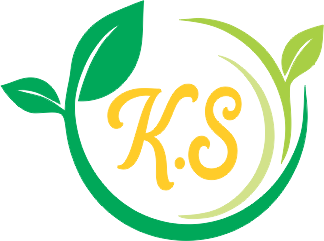
Top Nutrients for Repairing Damaged Hair: Feed Your Strands From Within
We often reach for deep conditioners, serums, or hair masks when our hair starts to feel dry, brittle, or frizzy. But here’s a little secret: the foundation of strong, healthy hair starts inside your body.
No matter how many products you apply topically, if you’re lacking essential nutrients, your hair won’t thrive. In this blog post, we’ll break down the most important nutrients for damaged hair, how they help, and where to get them.
Why Nutrition Matters for Hair Health
Hair is primarily made of a protein called keratin, and its growth and strength are highly dependent on your diet. If you’re not getting the right nutrients, your hair may become weak, dull, and prone to breakage—no matter how much you care for it externally.
1. Protein: The Building Block of Hair
Why It’s Important:
Hair is 90% protein. A protein deficiency can cause slow growth, thinning, and increased hair fall.
Best Sources:
-
Eggs
-
Lean meats (chicken, turkey)
-
Greek yogurt
-
Lentils and chickpeas
-
Quinoa and tofu
Tip: Aim for at least 0.8 grams of protein per kg of body weight daily—more if you’re active.
2. Biotin (Vitamin B7): For Strength and Growth
Why It’s Important:
Biotin helps produce keratin and is essential for hair growth. Deficiency can lead to hair thinning and breakage.
Best Sources:
-
Eggs (especially the yolk)
-
Almonds and walnuts
-
Sweet potatoes
-
Spinach
-
Salmon
Bonus: Many hair supplements contain biotin, but food sources are always best.
3. Omega-3 Fatty Acids: For Shine and Scalp Health
Why It’s Important:
Omega-3s nourish the scalp, reduce inflammation (which can cause shedding), and keep strands hydrated and shiny.
Best Sources:
-
Fatty fish (salmon, sardines, mackerel)
-
Chia seeds
-
Flaxseeds
-
Walnuts
Tip: If you don’t eat fish, consider an algae-based omega-3 supplement.
4. Vitamin C: For Collagen and Iron Absorption
Why It’s Important:
Vitamin C helps the body produce collagen, which strengthens hair. It also enhances iron absorption, which is crucial for hair follicles.
Best Sources:
-
Oranges and strawberries
-
Bell peppers
-
Kiwi
-
Broccoli
-
Pineapple
Fun Fact: Vitamin C is also a powerful antioxidant that protects hair from oxidative stress.
5. Iron: For Strong, Full Hair
Why It’s Important:
Iron helps red blood cells deliver oxygen to hair follicles. Low iron = weak follicles = hair thinning or shedding.
Best Sources:
-
Red meat and liver
-
Spinach and kale
-
Lentils
-
Pumpkin seeds
-
Fortified cereals
Tip: Pair plant-based iron sources with Vitamin C to boost absorption.
6. Vitamin E: The Scalp Protector
Why It’s Important:
Vitamin E helps reduce oxidative stress on the scalp and improves blood circulation, which is vital for hair growth.
Best Sources:
-
Almonds and sunflower seeds
-
Avocados
-
Olive oil
-
Spinach
Pro Tip: Topical Vitamin E oil also helps hydrate damaged strands.
7. Zinc: For Follicle Repair
Why It’s Important:
Zinc keeps the oil glands around follicles functioning properly. A deficiency can lead to hair loss or delayed growth.
Best Sources:
-
Shellfish (especially oysters)
-
Beef and chicken
-
Pumpkin seeds
-
Cashews
-
Whole grains
8. Vitamin A: For Scalp and Hair Moisture
Why It’s Important:
Vitamin A helps produce sebum, the natural oil that keeps hair moisturized. But be careful—too much Vitamin A can lead to hair loss.
Best Sources:
-
Carrots and sweet potatoes (rich in beta-carotene)
-
Kale
-
Eggs
-
Mangoes
9. Collagen: For Hair Structure and Elasticity
Why It’s Important:
Collagen supports the structure of your hair and can prevent breakage and improve elasticity.
Best Sources:
-
Bone broth
-
Collagen peptides (supplement)
-
Chicken skin
-
Fish
Tip: Pair with Vitamin C to enhance collagen synthesis.
10. Water: The Unsung Hero
Why It’s Important:
Hydration is key to keeping your hair moisturized from the inside. Dehydration leads to dry, brittle strands.
Goal: Aim for at least 2 liters (about 8 cups) of water a day, more if you’re active or live in a hot climate.
